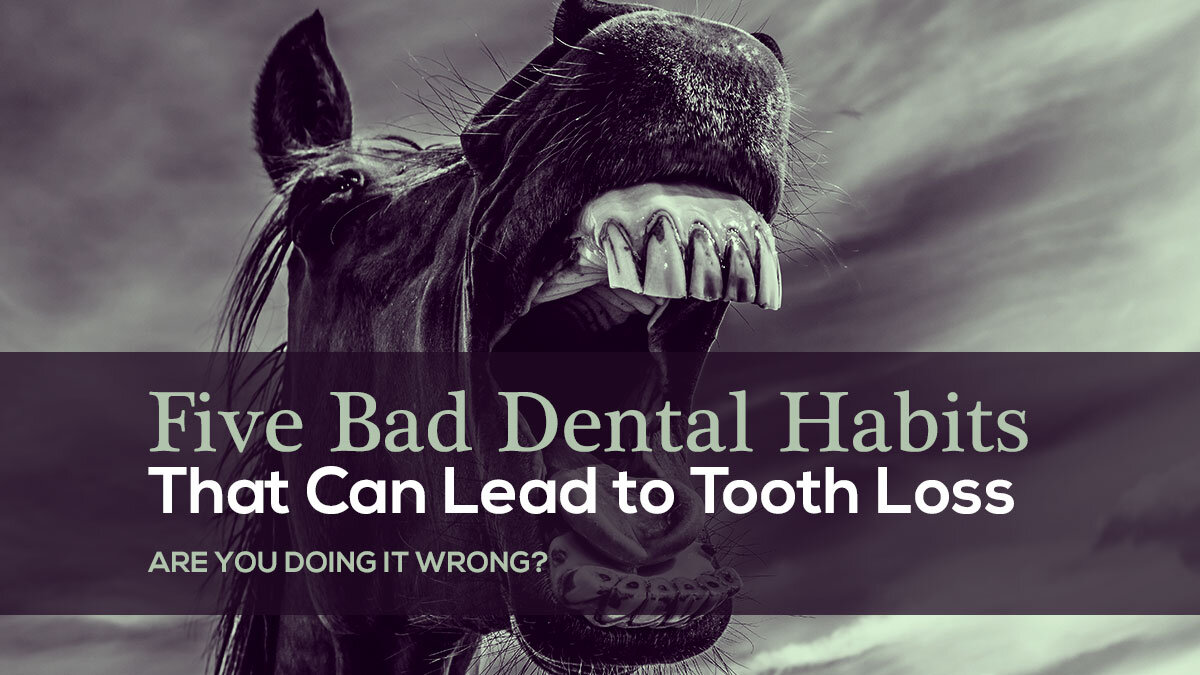Brushing, flossing, and regular dental checkups are vital to good oral health. Moreover, it's important to care for your teeth properly. Here are five bad habits that dentists want you to avoid.
Over Brushing Your Teeth
Amazing as this may seem, there is a right and a wrong way to brush your teeth. Brushing too hard, too long (more than two minutes), or using a toothbrush with hard bristles can wear away the protective layer of enamel and expose your tooth root. However, some dental professionals believe that using an electric toothbrush can cause problems as well.
A 2016 story out of New Zealand suggests that even overzealous dental patients using an electric toothbrush can cause damage including receding gums and tooth sensitivity. Talk to your dentist if you have questions or concerns.
Occasional Oral Hygiene Leads to Tooth Loss
Most people are aware of the need to brush, floss, and rinse daily. Even so, many still think they can get away with doing only half the job or doing it only half the time.
To make sure you get the full health benefit experts recommend you brush and rinse at least twice a day and floss at least once. Flossing complements tooth brushing by removing the small particles that you can't reach between your teeth. Rinsing after you brush helps remove the bacteria you've dislodged with brushing and flossing. While a good alcohol-free rinse provides added protection, even rinsing with water alone offers some benefit.
Putting the Wrong Things in Your Mouth
Your mouth and teeth are for chewing, speaking, and supporting your jaw and face. Using them as a bottle opener, scissors, pliers, or a nutcracker is potentially harmful. Even so, people routinely use their teeth as tools.
Using your teeth improperly may lead to cracked, chipped, broken, and loose teeth. Additionally, you could damage your gums and other soft tissue in your mouth. It's vital to remember to use your teeth correctly in order to retain a healthy mouth and a beautiful smile.
Oral Piercings May Cause Problems
According to the American Dental Association, oral piercings may lead to problems including gum and tongue pain, swelling, and infection as well as cracked, broken, and missing teeth. Tongue and lip piercings also may cause sensitivity to metals, increase saliva flow resulting in drooling, and result in nerve damage. While piercings may be trendy, before you make the plunge talk with your dentist to ensure you make the best choice.
Tooth Grinding Can Lead to Tooth Damage
It really doesn't matter what causes bruxism (tooth grinding), it's all about taking steps to correct the problem before you cause damage to your teeth. Over time, tooth grinding can wear down your teeth and result in headaches, jaw aches, and tooth sensitivity.
The damage occurs due to repeatedly clenching your jaw and grinding your teeth. The pressure can result in micro-fractures in your teeth. This weakens the enamel and causes damage to your dental work.
To learn how to care for your teeth and gums properly speak with your dentist. Make sure you're doing the best you can for your smile.
Related Oral Hygiene Articles
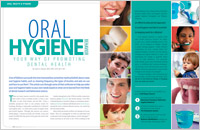 Oral Hygiene – Dental Health for Life
Oral Hygiene – Dental Health for Life
The best tools for maintaining your oral health and minimizing dental problems are a quality toothbrush, toothpaste, a roll of dental floss, approved mouthwash and good diet. Unfortunately, myths and folklore abound on how and what to use to best effect. This article cuts through the confusion with a winning game plan for oral health... Read Article
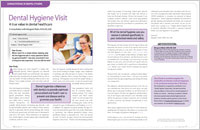 Dental Hygiene Visit
Dental Hygiene Visit
Each dental hygiene visit begins by reviewing your health history to identify issues that may necessitate special precautions during dental hygiene care to ensure your safety and to prevent medical emergencies... Read Article
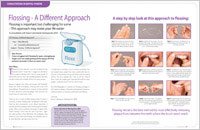 Flossing - A Different Approach
Flossing - A Different Approach
Flossing is important but challenging for some - this approach may make your life easier! Research suggests that while most people will habitually brush their teeth, developing a flossing habit is still a bit more difficult. Flossing however, remains the best method for most effectively removing plaque from between the teeth where the brush won't reach... Read Article
